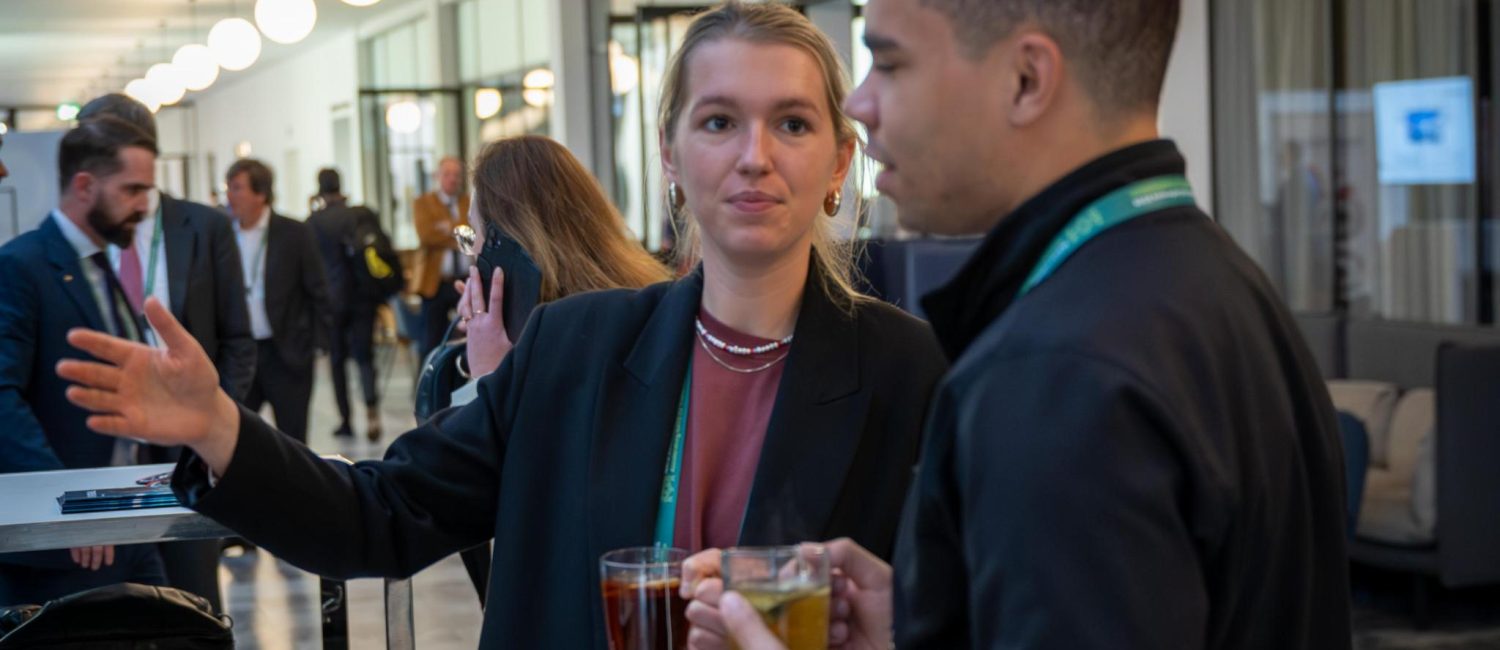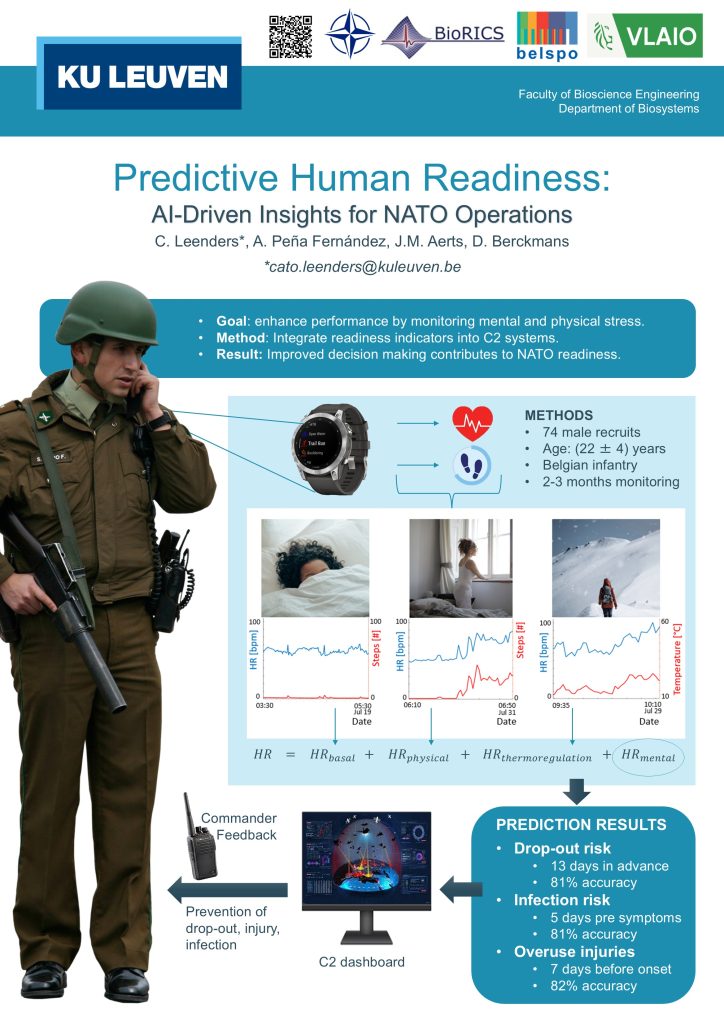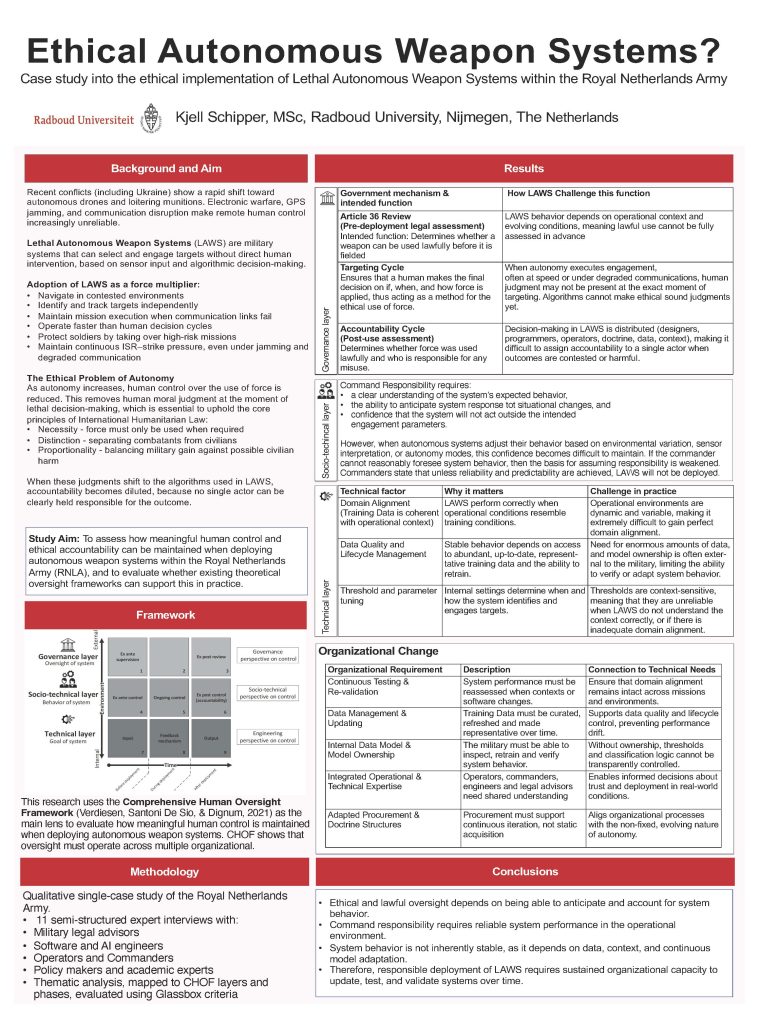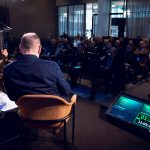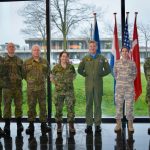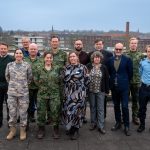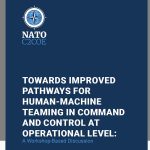The NATO C2COE congratulates Ms. Cato Leenders and Mr. Kjell Schipper with their noteworthy submissions for the NATO C2COE Student Challenge during the Annual C2 Conference 2025 – a competition for students who want to shape the future of Command & Control.
Cato and Kjell will be given the opportunity to present their ideas to senior military leaders, NATO experts, renowned researchers and industry during the NATO C2COE Conference 17 – 20 November 2025 at the Rotterdam World Trade Centre on how NATO can lead in C2, Multi-Domain Operations, accelerate digital transformation, and maintain Decision Advantage in an increasingly complex world. As part of their reward, both will be offered mentorship from NATO C2COE experts and publication opportunity in the Annals of C2. Moreover, Cato and Kjell will gain access to a network of military C2 experts around the globe.
Poster presentations (Click on the image to view the full poster.)
Cato Leenders: Algorithm Engineer | BioRICS NV
Cato Leenders is a researcher and engineer pursuing a Baekeland PhD in collaboration between KU Leuven and BioRICS NV. Her doctoral work focuses on automated emotion recognition via wearable technology, integrating physiological data analysis with real-time algorithms to better understand human performance and wellbeing.
At BioRICS, a company specialized in individualized, real-time monitoring algorithms for high-performance domains such as elite sports and defense, Cato serves as Project Lead for military applications. In this role, she bridges academic research and applied innovation, developing data-driven systems that enhance resilience, performance, and safety in demanding environments.
Kjell Schipper: Human Geography – Conflict, Territories & Identities | Radboud University
Kjell Schipper, MSc recently graduated his masters in Human Geography (conflict studies) with honours with a thesis on the Ethics of Autonomous Weapon systems. Before completing this master, he attained degrees in both Business Administration and Psychology.
THEMES
Submissions had to contribute to enhancing, understanding, and clarifying research and case studies which may contribute to a deeper understanding and application of C2, including the role of multi-domain operations (MDOs) and Artificial Intelligence (AI). The challenge aimed to address three main areas in the field of C2:
- Processes and structures, focusing on the effectiveness and efficiency of the operational level headquarters.
- Information and knowledge management, focusing on how individuals, teams and entire organizations create, share and apply knowledge in order to better achieve their objectives.
- Human factors, focusing on understanding how people perform under different circumstances; that is, on the interrelationship among humans, between humans and their supporting tools, and between humans and their professional environment (including insights of anatomy, physiology, physics, biomechanics, psychology and sociology).
WHO COULD PARTICIPATE?
- Bachelor’s, Master’s and PhD students
- From any university, defence academy, or technical institute (worldwide)
- No NATO affiliation required
- Every background – computer science, psychology, engineering, social sciences, and beyond – any research or thesis that might offer fresh insights that can help shape the future of NATO C2.
Command & Control (C2) is how military organizations coordinate people, information, and technology to make better decisions and act effectively together. C2 is the brain and central nervous system. C2 challenges are similar to those faced in many fields: from managing complex projects, utilizing AI for improving decision making and understanding how humans interact and perform under stress.

